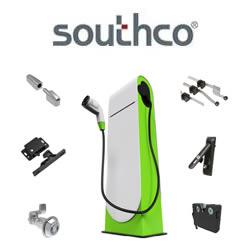Due to its stability, chemical purity, transmissivity to light, and heat resistance, quartz has for many years been vital to the production of semiconductors for the electronics industry. The material is virtually inert, very durable and will withstand the high temperatures associated with semiconductor fabrication and testing.
Fused Quartz, a Critical Component of the Solar Power Industry
Carlo Chatman for | Technical Glass Products
Much of the success of sustainable energy sources depends on the achievement of improved efficiencies, and photovoltaics are no exception. One of the primary materials that delivers superior efficiency to the solar power industry today and is helping researchers advance the technology at affordable prices - is fused quartz.
Quartz glass is used in many key facets of photovoltaic (PV) cell manufacturing, including the use of furnaces, light sources, reaction chambers and tools used in the production of solar cell thin films and silicon wafers.
Due to its stability, chemical purity, transmissivity to light, and heat resistance, quartz has for many years been vital to the production of semiconductors for the electronics industry. The material is virtually inert, very durable and will withstand the high temperatures associated with semiconductor fabrication and testing.
"Today, virtually all photovoltaic materials and devices are some type of semiconductor-based photodiode," says James Horvath, President of Technical Glass Products (TGP), Painesville, OH, one of the nation's largest distributors and fabricators of fused quartz material.
"For example, photovoltaic solar cells that use thin-film technology (also called a thin-film photovoltaic cell) often use a crystalline compound that is based on cadmium telluride, which forms a semiconductor layer that absorbs sunlight and converts it to electricity," Horvath explains. "The cadmium telluride material, which is deposited as a layer on the film, is processed in fused quartz."
Photovoltaic solar collectors that use silicon wafer diode technology (photodiodes) are also dependent on the use of various quartz products in a manner that is similar to the semiconductor wafers commonly used in semiconductors for electronics.
"Like traditional silicon chips, photodiode wafers are grown and processed in quartz crucibles or large-diameter quartz tubes," says Horvath, "then they sliced into wafers and placed onto the panel. The wafers can be formed in circles, squares or other shapes, depending on how close the solar collector designer wants the wafers to fit together, for the purpose of density or efficiency."
Horvath adds that producers of all semiconductor technologies use a variety of quartz and fused quarts products, including manufacturing and lab ware products used in development and testing.
Physical properties such as hardness, chemical purity, resistance to high temperatures and corrosion, and electrical insulation make structures composed of fused quartz ideal for semiconductor production.
"Fused quartz is one of the purest materials available, having a nominal purity of up to 99.996 percent," Horvath says. "The purity of quartz is highly beneficial to semiconductor fabricators, since even trace amounts of impurities will be transported to silicon wafers and wreak havoc on performance, often making them unacceptable. For example, the presence of any number of impurities can alter the performance of dopants (e.g. phosphorous or arsenic), creating the occasion for lag, thereby interfering with semiconductor performance. Even trace amounts of alkali can reduce wafer yields."
Horvath says that the exceptional purity of quartz is unsurpassed in the glass industry, and are much superior to borosilicate products. He adds that the optical purity of quartz that may be equally important to many users in laboratory environments because a relatively broad range of light wavelengths to pass unimpeded through clear quartz ware, which is vital to many laboratory applications.
Leading suppliers offer a broad range of products that are used in semiconductor fabrication. For example, Technical Glass offers an exceptional line of raw material and semiconductor fabrication ware, including plasma chambers, epitaxial systems, bell jars, tubing up to 400 mm, and many other items.
"In many instances, in addition to product selection, solar industry customers should also consider what technical services are needed," Horvath advises. "Highly experienced quartz glass blowers should offer a full range of ancillary services, including assistance with product design, applications and specifications, fabrication services, machining and assembly, and repair."
Founded in 1990, Technical Glass Products is a nationwide fabricator and distributor of fused quartz and borosilicate glass. The firm prides itself in offering a comprehensive raw quartz inventory, technical product assistance, and its capabilities of meeting the industry's most stringent standards and tolerances.
For more information, contact Technical Glass Products, 881 Callendar Blvd., Painesville, OH 44077; Phone: (440) 639-6399; Fax: (440) 639-1292; Email: tgp@tgpohio.com; Visit the web site: www.technicalglass.com.
The content & opinions in this article are the author’s and do not necessarily represent the views of AltEnergyMag
Comments (0)
This post does not have any comments. Be the first to leave a comment below.
Featured Product

Southco Inc. - POWER UP YOUR CHARGING DESIGN
With engineered access solutions for electric vehicle charging equipment. Southco's engineered access hardware, including locks, latches and hinges can help Electric Vehicle (EV) charging manufactures to achieve high standards of equipment performance, usability and security, providing a seamless charging experience for drivers.
